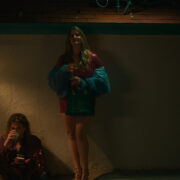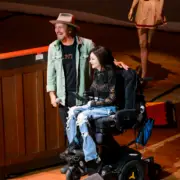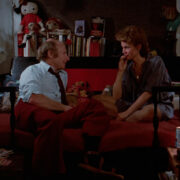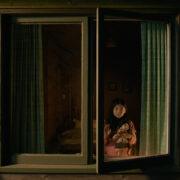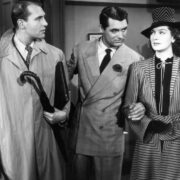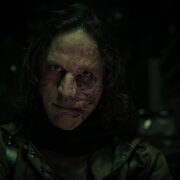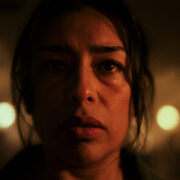TIFF 2025: Interview with Nicole Bazuin and Andrea Werhun of Modern Whore
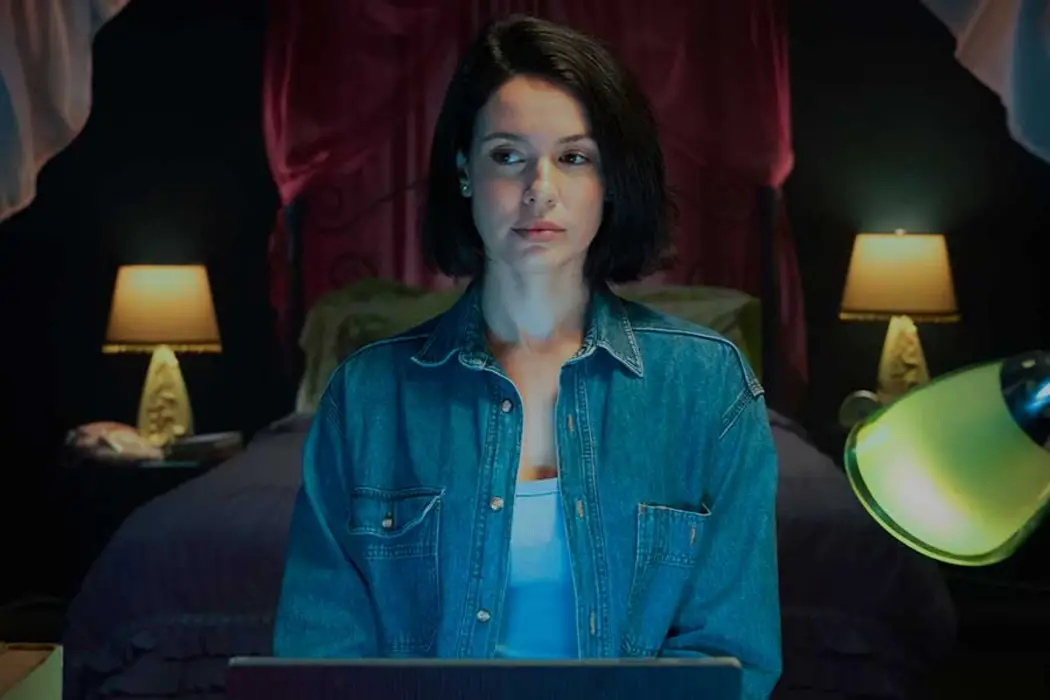
Wilson is a cinema enthusiast based out of Toronto, Canada.…
After collaborating on projects with each other for more than a decade, Nicole Bazuin and Andrea Werhun’s creative endeavours have culminated in a creatively charged feature-length film. Modern Whore, which shares the same name as a short film and book from both Bazuin and Werhun, is a thoughtful examination of the sex work industry in Toronto. And although its local roots make the Toronto International Film Festival a very natural home for its world premiere, the very universal themes embodied in the film are also befitting of an international film festival. Film Inquiry had the great pleasure of speaking with both Bazuin (director, writer) and Werhun (writer, actress, subject) during the 2025 edition of the festival.
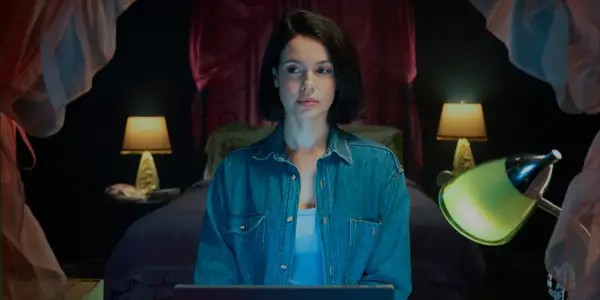
Wilson Kwong for Film Inquiry: The film covers what a modern sex workers experience might look like today, which is also reflected in the movie’s title (Modern Whore). I’m curious how the two of you actually define what a modern whore is and why you decided to keep the title consistent across the three projects (the short film, the book and the movie).
Andrea Werhun: So sex work, in and of itself, is an umbrella term that encompasses a very wide variety of occupations within the sex industry. They include escorting, stripping, domming, subbing, phone sex operation, online content creation, and essentially any occupation in which sexuality is being exchanged for money. And so where the word whore comes in, I think, is it is a pejorative. It’s a slur that has been used not only against sex workers – it is certainly a word that we associate with sex work and prostitution – but it’s also an insult that’s hurled at women generally, especially when we behave out of line. And so it was important for me as a sex worker to reclaim that term and broaden it with the preface of ‘modern’ to suggest that this is a modern story about a modern whore. And it is a sex work story, but I think it’s also a woman’s story as well.
Nicole Bazuin: This project started as a book, a collaborative book comprised of stories written by Andrea of her experiences as an escort and a stripper in Toronto, accompanied by photos by yours truly. And our notion with that this would be Playboy if it were run by the bunnies. So that was the original Modern Whore. From there, it felt right to continue to expand the ‘modern whore universe’ and continue with that title for a feature film, which is the adaptation of the book.
So was the intention to build off of each project, or just have each one be a distinct project from each other?
Nicole Bazuin: Yeah, I think we see our collaboration and our work as this multimedia endeavor, and I think that [same] title helps to link it all together.
I also really like the term, ‘modern whore universe’!
Nicole Bazuin: Well, actually put in ‘cinema’ as well. The modern whore cinematic universe, the ‘MWCU’.
I wanted to ask about your collaboration with one another, which seems so unique and special. I know you’ve worked on many different projects before, but this is the first time you’re working on a feature film together. I was wondering if this process was any different from your previous collaborations, since it seems so much bigger in scope?
Nicole Bazuin: This is certainly the most epic collaboration to date. And so, of course, the scope of doing a feature was a leap. I think we were also both hungry for it as storytellers and artists to actually have more real estate to tell Andrea‘s story in a more fulsome way, where we could actually cover quite a large breadth of her experience. I don’t know if you want to speak to that breadth [Andrea], but it’s like 10 years of your life we capture in this film. And also through doing a feature, we were able to, again, expand the ‘modern horror cinematic universe’ to include other voices. So to actually have the opportunity to do something we thought was really important, which was to show Andrea’s support system; her personal relationships on screen, and her mom, her boyfriend, her peers andx friends. That was a way to actually expand upon the book and have these other voices be part of the story.
Andrea Werhun: That’s hard to top, but I would say there’s obviously some big major differences between working on a feature film and a short film, and certainly working on a book. But what is so beautiful about our projects and our collaboration is that many of the people that we’ve worked with on this film are longtime collaborators as well. A lot of people who worked even on the first iteration of the book also played a role behind the scenes on the feature film, for instance. So we are building on something and it’s expanding. The ‘modern whore cinematic universe’ is expanding, but a lot of the same people are coming along for the journey.
And just to expand on that even further, having worked together for 10 years now, I assume the two of you know each other very well. And I assume not just professionally and creatively, but also personally too. How has your working relationship with one another changed over the years?
Nicole Bazuin: I think as it [went] on, something that I just took for granted and rolled with, was how well Andrea and I worked together and how we enjoyed our friendship and artistic collaboration. Now it’s really starting to hit home for me, how special that is because it is rare and it’s the foundation in which we’re building this. I like to think that when audiences are experiencing our work, they’re also seeing a reflection of the relationship that we have embedded into that work.
Andrea Werhun: I agree with that. I think that our collaboration has always been a love letter to our friendship, and a love letter to each other. And I think that love and friendship really comes through in the film and I’m in continuous awe of Nicole perpetually; for her vision, her eye, her determination, her hard work, her craft and her talent. So it’s just such a gift to work with her. I call her my wife. It’s not legal, don’t tell anybody, but I love her.
Nicole Bazuin: Ditto!
That’s a great answer, and it’ll definitely be included in the interview! You mentioned before the breadth of topics that were included in the film. I was just wondering how you actually choose what to include, and were there certain topics or issues that you wanted to include in the film, but weren’t able to?
Nicole Bazuin: So we knew that it would be important to have humor be a factor in this film. We wanted to contribute to this style of representation that was going to be a departure from these tired stereotypes of the victim and villain portrayals of sex workers. It was going to be a departure from dower drab representations as well. So as a result, it’s bursting with colour, it’s incorporating humor throughout, but it’s always been important to us to reflect both the light and the dark, while trying to make what we ultimately hope is a film that’s also full of joy and love.
Andrea Werhun: I think there’s stories in the book that get expressed in the feature film in ways that go beyond necessarily reenactments. For instance, there’s a story in the book about coming out to my mom called ‘Unshamable Love’. And instead of reenacting that story, we just interview her. So I think that there were decisions made, particularly on a Nicole directorial level, for which of these stories we can most easily bring to the screen and what we can do to transform them? We have another one called ‘Go Leafs Go’ in the book that is brought to the screen. And it goes beyond the story in the book as a retelling of it because it’s got this element where it’s hockey themed, and then we’ve got hockey announcers in the background. And that’s Nicole‘s brilliant writing. It’s hilarious. It just goes beyond what’s in the book, and I think that was part of the process of which stories are going to best illustrate our overarching point, what can be expressed through interview and what can we even expand on further.
Nicole Bazuin: It was also a matter of Andrea‘s work. Her collection of stories in the Modern Whore book are the source material. There is material that’s not covered in the film, so it was also reflecting on that work and thinking about her through line story and how to tell that in a feature length format. And in addition, what are the themes that felt like they were popping out of the story strongly? So themes like trauma porn were a thread that was to a degree throughout certain stories, and that felt important to include. A theme of performance was another theme. So in looking at the material, what are these main themes that feel like they are popping out and need to be part of the feature?
For sure, it’s really great that in terms of themes like workplace safety, and the shame that one may feel with sex work, I thought it really came through in the film and was just beautifully executed. Now, since the film premiered last week and you’ve gotten some initial audience reactions, are there things about the film you might’ve done differently in hindsight? Or anything you would’ve reconsidered?
Nicole Bazuin: I think we’re pretty darn happy with this film!
Andrea Werhun: Agreed!
Nicole Bazuin: And for us, it’s now the most exciting part, which is that it’s [no longer] just our film, it now belongs to the audience. I think we’re just thrilled with what we’ve made and even more excited to have it continue to find its audiences around the world.
Now that we’ve coined the term ‘modern whore cinematic universe’, what’s next for the universe?
Nicole Bazuin: The world’s our oyster.
Andrea Werhun: We have a reoccurring joke that we’re going to make Modern Whore 3 in space, and bring decriminalization to the universe! That will remain to be seen, but we definitely want to continue building out the world.
Does content like this matter to you?
Become a Member and support film journalism. Unlock access to all of Film Inquiry`s great articles. Join a community of like-minded readers who are passionate about cinema - get access to our private members Network, give back to independent filmmakers, and more.
Wilson is a cinema enthusiast based out of Toronto, Canada. He escapes from his day job by writing random thoughts about cinema on the internet. Although he has a longstanding penchant for Hong Kong cinema, he considers himself to be an advocate for Asian cinema in general. He has been attending the Toronto International Film Festival every year since 2005, and more of his work can be found on his website: www.wilson-kwong.com.

